
The International Olympiad in Informatics (IOI) is an annual competitive programming competition and one of the International Science Olympiads for secondary school students. The first IOI was held in 1989 in Pravetz, Bulgaria.
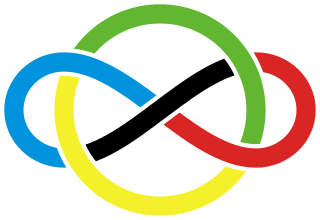
The International Mathematical Olympiad (IMO) is a mathematical olympiad for pre-university students, and is the oldest of the International Science Olympiads. It is widely regarded as the most prestigious mathematical competition in the world. The first IMO was held in Romania in 1959. It has since been held annually, except in 1980. More than 100 countries participate. Each country sends a team of up to six students, plus one team leader, one deputy leader, and observers.
The International Physics Olympiad (IPhO) is an annual physics competition for high school students. It is one of the International Science Olympiads. The first IPhO was held in Warsaw, Poland in 1967.
The International Chemistry Olympiad (IChO) is an annual academic competition for high school students. It is one of the International Science Olympiads. The first IChO was held in Prague, Czechoslovakia, in 1968. The event has been held every year since then, with the exception of 1971. The delegations that attended the first events were mostly countries of the former Eastern bloc and it was not until 1980, the 12th annual International Chemistry Olympiad, that the event was held outside of the bloc in Austria. Up to 4 students for each national team compete around July in both a theoretical and an experimental sections, with about half of the participants being awarded medals.

The International Biology Olympiad (IBO) is a biological olympiad for pre-university students under the age 20, and is one of the most well-known International Science Olympiads. The first IBO was held in Czechoslovakia in 1990, and it has since been held annually. The competition have gradually expanded to include more than 75 participating countries across five continents. All participating countries send the four winners of their National Biology Olympiad to the IBO, usually accompanied by two adults who are members of the international jury, for the duration of the competition.

National Organization for Development of Exceptional Talents is an Iranian organization founded in 1976 that governs a series of selective schools.

Woburn Collegiate Institute is a semestered, English-language public secondary school on Ellesmere Road in the Woburn neighbourhood of the Scarborough district of Toronto, Ontario, Canada operated by the Toronto District School Board. From its inception in 1963 until 1998, it was operated by the Scarborough Board of Education.

Science, technology, engineering, and mathematics (STEM) is an umbrella term used to group together the distinct but related technical disciplines of science, technology, engineering, and mathematics. The term is typically used in the context of education policy or curriculum choices in schools. It has implications for workforce development, national security concerns, and immigration policy, with regard to admitting foreign students and tech workers.
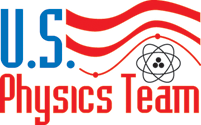
The United States Physics Olympiad (USAPhO) is a high school physics competition run by the American Association of Physics Teachers and the American Institute of Physics to select the team to represent the United States at the International Physics Olympiad (IPhO). The team is selected through a series of exams testing their problem solving abilities. The top 20 finalists are invited to a rigorous study camp at the University of Maryland to prepare for the IPhO.
The Indian National Physics Olympiad is the second stage of the five-stage Olympiad programme for Physics in India. It ultimately leads to the selection in the International Physics Olympiad.
This article describes the selection process, by country, for entrance into the International Mathematical Olympiad.
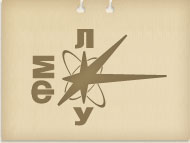
The Ukrainian Physics and Mathematics Lyceum (UPML) is a boarding high school and one of the few science magnet schools in Ukraine. It is located in Kyiv and affiliated with Taras Shevchenko National University of Kyiv.
The Asian Physics Olympiad (APhO) is an annual physics competition for high school students from Asia and Oceania regions. It is one of the International Science Olympiads. It was initiated in the year 2000 by Indonesia. The first APhO was hosted by Indonesia in 2000.
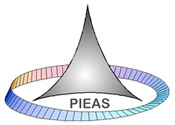
The Pakistan Institute of Engineering and Applied Sciences (PIEAS), is a public research university located in Islamabad, Pakistan. The university is modelled on international standards with a strong focus on the scientific advancement of the nuclear science-related STEM fields.
The HUS High School for Gifted Students, commonly known as High School for Gifted Students of Science, is a specialized, most-selective public magnet school of VNU University of Science, a member of Vietnam National University, Hanoi system. The school serves as a national educational institution to nurture talented Vietnamese students who excelled at natural sciences. The largest percentage of its graduates attend the most prestigious universities in Vietnam.

Gymnázium Christiana Dopplera is a public secondary school located in the Malá Strana district of Prague, Czech Republic. The school offers both 4-year and 8-year study programs, and students can specialize in mathematics and physics or in foreign languages.
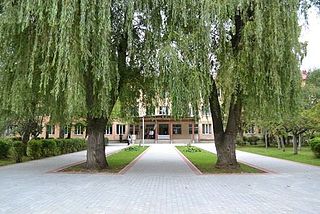
The Lviv Physics and Mathematics Lyceum is a public boarding high school in Lviv, Ukraine. It is considered to be one of the best educational institutions in the country. In 2012 and 2015, the Lviv Physics and Mathematics Lyceum was ranked first among high schools in Ukraine by Focus magazine. The school is well known for organizing multiple country-wide competitions in mathematics, physics ("Levenia"), programming ("Bober"), and the Ukrainian version of the international Mathematical Kangaroo contest.
Leopoldo A. Pando Zayas is a physicist and string theorist. He is professor in the Department of Physics at the University of Michigan, Ann Arbor.

The Bangladesh Physics Olympiad (BdPhO) is an annual competition for young physicists in Bangladesh, which was founded in 2011.












